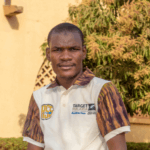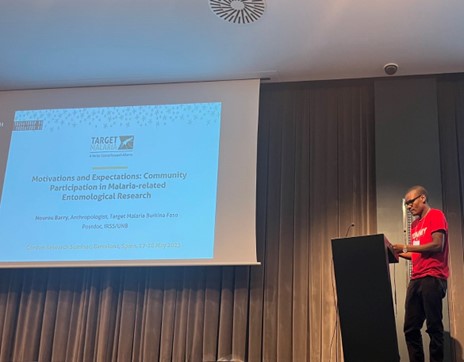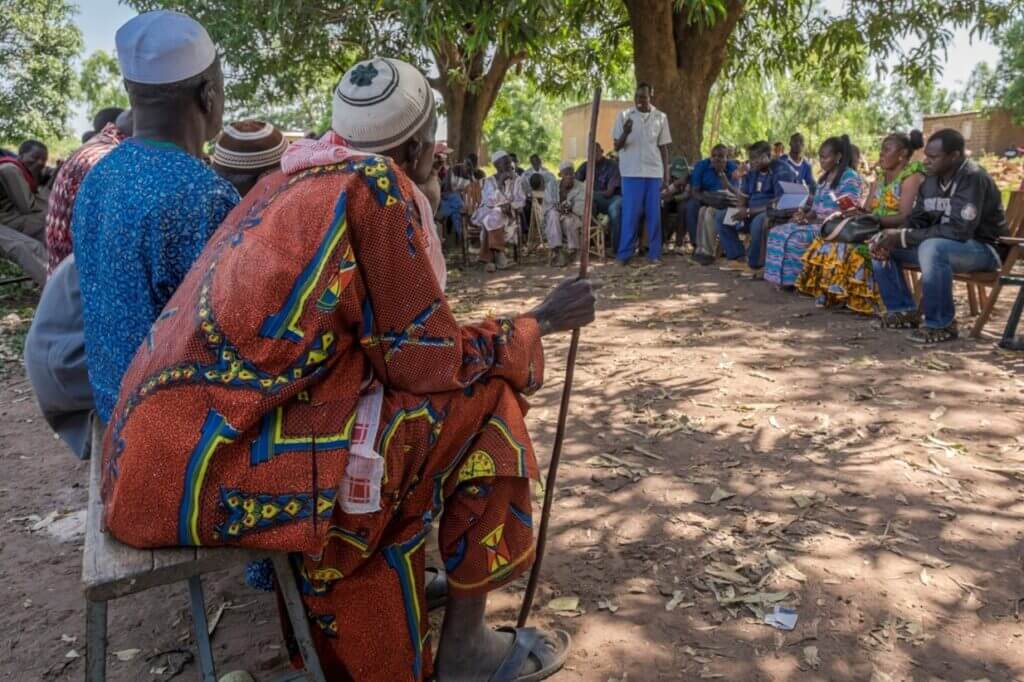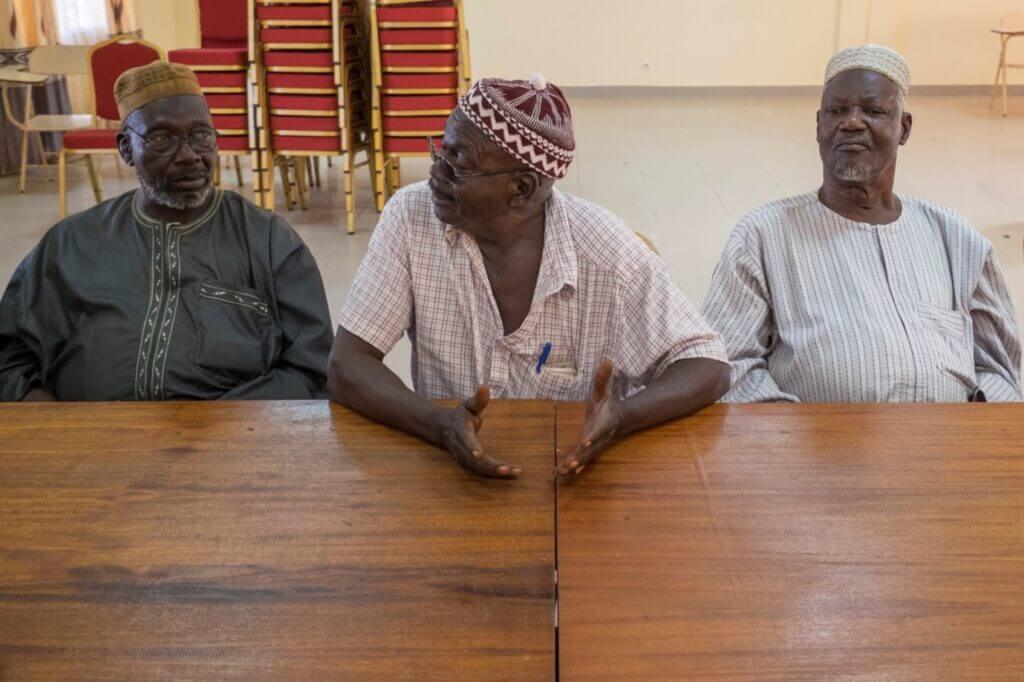Empowering communities in the fight against malaria: Reflections from the Gordon Research Conference

Greetings from Barcelona! I, Dr Nourou Barry, SE Lead Assistant from Target Malaria Burkina Faso, recently had the privilege of attending the prestigious Gordon Research Conference on malaria in Casteldefells, Spain. This event brought together experts and researchers from around the world to discuss the latest advancements in combating malaria, a devastating disease that affects millions of lives, particularly in Africa. During the conference, I had the opportunity to present my research on the motivations and expectations that drive community participation in entomological research.
In this blog, I share some key insights and reflections from the conference and shed light on the crucial role that communities play in the battle against malaria:

Dr. Nourou Barry presenting at the Gordon Research Conference.
- Engaging local communities: Malaria control initiatives cannot succeed without the active involvement of local communities. Since 2012, Target Malaria, has been working hand in hand with the residents of Bana, a village in Western Burkina Faso, on various mosquito research activities. These collaborations involve mosquito collections, releases, and recaptures, with the goal of developing innovative solutions to combat malaria in Africa using mosquito modification technologies.
2. Exploring motivations and expectations: The focus of my research presented at the conference was to delve into the motivations that drive community members in those villages to participate in Target Malaria’s entomological research activities. Through a qualitative approach involving in-depth interviews and focus groups, we gathered valuable insights from 85 individuals in the community. The data analysis revealed five overarching categories of motivation: enhancing domestic protection from mosquitoes and malaria, contributing to a future world free of the disease, acquiring knowledge and skills, earning financial compensation, and gaining social prestige for the village.

Meeting with stakeholders in a village in Burkina Faso
3. A complex tapestry of motivations: Our study uncovered a fascinating tapestry of motivations that underpin community participation in entomological research. While individuals expressed their motivations in different ways, we discovered a consistent set of factors driving their engagement. Many community members were motivated by the desire to protect their families and loved ones from the burden of malaria. Their participation was fuelled by a shared vision of a malaria-free future, where generations to come would be spared from this relentless disease. Furthermore, community members saw participation as an opportunity to acquire knowledge and develop skills that could benefit both themselves and their community. Additionally, community pride and the desire for social prestige emerged as significant factors, as participants recognized the importance of their village’s contribution to scientific research and the greater good.

A community leader addresses the Target Malaria stakeholder engagement team in Burkina Faso
- Empowering communities for greater impact: The findings of our research highlight the multifaceted nature of community participation in entomological research and vector control activities. It is crucial for malaria control programs to acknowledge and address these motivations when seeking community involvement. By understanding the expectations and aspirations of community members, initiatives can be tailored to create a sense of ownership and empowerment among participants.
- Mobilising local participation: Moving forward, detailed knowledge of community expectations should serve as the foundation for mobilising local participation in field research activities. This requires a collaborative and inclusive approach that respects the perspectives and needs of the community. When communities are actively engaged and recognised as equal partners in the fight against malaria, research initiatives become more effective and sustainable.

Bana village, Burkina Faso
Attending the Gordon Research Conferences was an enriching experience that allowed me to share the valuable insights gained from studying community motivations in entomological research. The dedication and commitment of the residents of Bana, Burkina Faso, serve as a testament to the power of community engagement in malaria control efforts.
I am grateful for the opportunity to have presented my research at the conferences. It is my hope that this work inspires further exploration and encourages researchers and organizations to embrace community engagement as a cornerstone of their vector control strategies.
As we strive to combat this global health challenge, let us remember that empowering communities and fostering meaningful collaborations are essential steps on the path to co-development in research.
Together, we can make significant strides towards a world free from the burden of malaria, ensuring a healthier and brighter future for all.
